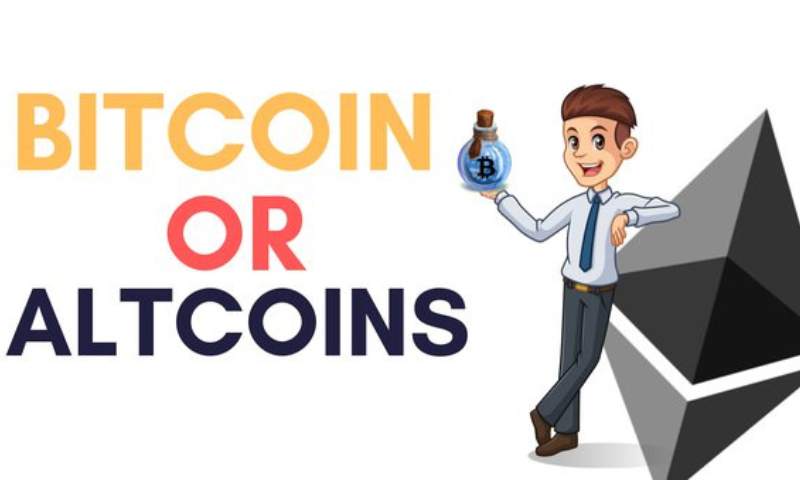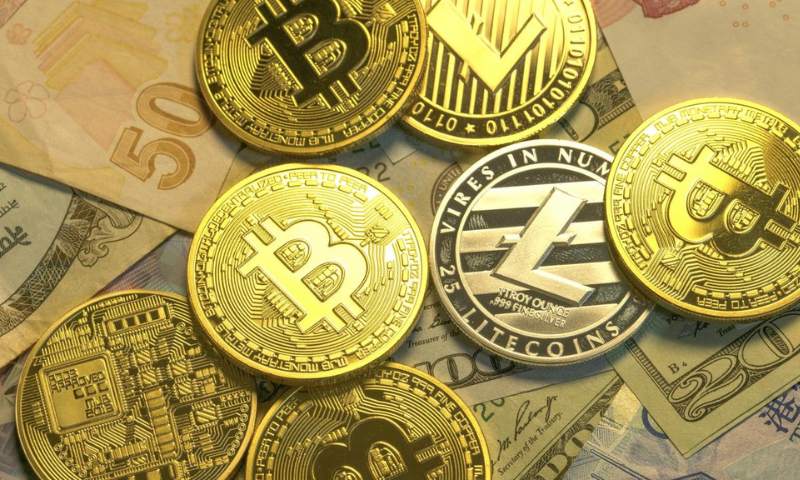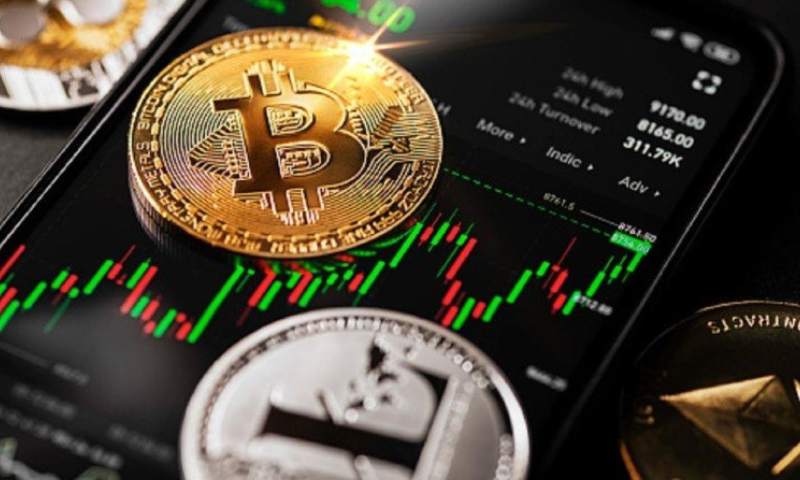Is Bitcoin Safer Than Altcoins? Unpacking the Crypto Security Debate
In the wild west of crypto, one question rides high: is Bitcoin safer than altcoins? As we gear up our digital horses to explore this gritty terrain of blockchain security, let’s saddle up with facts. Bitcoin, the trailblazing sheriff of cryptocurrency, has a badge gleaming with robust network protocols. Its history shows a track of dealt-with dangers. Now, ride with me as we compare the old reliable Bitcoin to the bustling town of altcoins, eyeing how size impacts their safety. We’ll dissect tech guts, from consensus mechanisms to smart contract safeguards. And don’t think the law doesn’t have a say; we’ll explore how regulations shape our sense of security in this ever-evolving market. Prepare for a showdown as we seek the true face of crypto safety.
Analyzing the Security Features of Bitcoin
Assessing Bitcoin’s Network Security Protocols
Bitcoin uses network security protocols that are strong. These protocols make it hard for hackers to cause trouble. For example, Bitcoin’s proof of work system makes it so attackers need lots of computers to take control. This means it costs too much for most hackers to attack.
Why does Bitcoin’s proof of work help? This system has all users confirm transactions. To add fake transactions, a hacker needs more power than all other users combined. This is very hard and expensive. It’s like trying to win a tug-of-war against a whole town.
Bitcoin’s blockchain is also public. Everyone can see all transactions. This transparency helps spot any funny business fast. Bitcoin’s software is open source too. This means many eyes are always checking it for bugs or weak spots.
Bitcoin Historical Performance and Security Incidents
Bitcoin has been around longer than most altcoins. It’s had ups and downs but stood the test of time. Its long history helps people trust it more.
Has Bitcoin been hacked? Yes, there have been hacking incidents, like the famous Mt. Gox event in 2014. However, it’s important to know that Bitcoin’s system itself stayed safe. The hacks happened at businesses that use Bitcoin, not Bitcoin itself.
These events teach us things. Each time a hack occurs, everyone learns and makes Bitcoin even safer. This learning process helps Bitcoin stay ahead in security. The more it gets tested, the tougher it gets.
Trust in Bitcoin has grown because it bounces back after problems. People see it keep going, which builds confidence. When you look at market stability, Bitcoin tends to be less wild than altcoins. This means it doesn’t have as many big price jumps or drops.
Bitcoin’s size also helps its safety. Its large market cap makes it a big target for cyber attacks. Yet, it still holds strong. That’s a good sign of its overall safety.
Other digital currencies may come and go, but Bitcoin has shown that it lasts. The trust factor for Bitcoin keeps growing as it passes each test and as more users join. People see others using Bitcoin without problems, so they feel okay using it too.
The safety of your Bitcoin also depends on your wallet. A good wallet keeps your coins safe. There are lots of options, so you can pick what’s best for you.
Bitcoin is not perfect. No currency is. But, when you look at altcoins with newer or less tested security, Bitcoin is often seen as the safer bet. It’s like stepping onto a strong, old bridge rather than a new one that hasn’t been fully checked yet.
Security in crypto is a big topic, and Bitcoin has set a high bar. It keeps proving its strength, even as it grows and faces new challenges. This isn’t just good for Bitcoin users. It sets a standard for safety in all of cryptocurrency.
Comparing Bitcoin to Altcoins in the Safety Arena
How Market Capitalization Influences Security
Big size often means more safety. Think of Bitcoin as a huge ship and altcoins as smaller boats. The big ship can handle rough waves better, just like Bitcoin deals with market chaos in a stronger way. With more money put into Bitcoin, its market cap is bigger. This size makes Bitcoin harder to mess with. People trust it more, which tends to keep it steady.
Now, let’s dive deeper. Market cap isn’t just a money pile. It’s like the health meter of a coin. A high market cap means a coin has lots of life points. It suggests that more people are onboard, making it less likely to crash from a single hit, like bad news or a big sell-off. In short, a heavy market cap shields Bitcoin better than lighter ones protect most altcoins.
Altcoins Security Breaches: Lessons Learned
Small coins can mean higher risk. Altcoins can be like new kids on the block, fighting to prove themselves. They have fresh ideas but also face more danger. When hackers break into altcoins, we see the weak spots. These breaches teach us tough lessons about digital money safety.
Hackers love to find cracks, and altcoins have given them chances. Every hack on altcoins makes us ask, how did it happen? From there, we learn. We secure the tech better. We put up stronger walls. These mistakes are harsh teachers, showing where altcoins need to beef up and how Bitcoin has already built its fortress.
Bitcoin has felt the heat of attacks too. But it’s been around longer, learning and growing tougher with time. It’s had years to patch up and stand tall, while some altcoins are still working out the kinks. We’ve seen Bitcoin shake off hits that sank smaller coins, teaching us that experience in the ring counts for a lot.
Here’s the take: Big market caps don’t guarantee safety, but they do build trust and buffer shakes. Altcoins have taught us to stay awake. They remind us that fresh tech can face old tricks from hackers. A good safety net for our money means watching the sea of market caps and learning from past spills. We stand guard, so the next wave – big or small – doesn’t catch us off guard.
The Technical Backbone: How Blockchain Consensus Mechanisms Affect Security
Proof of Work vs Proof of Stake: Security Implications
Have you ever wondered what keeps Bitcoin safe? It’s something called “proof of work.” This is like a big puzzle that computers solve. It’s hard to do, but it makes sure that all Bitcoin trades are fair and true. Other coins use a different plan, called “proof of stake.” This is where people show they own part of the coin to help keep things safe. Both have good points and both have things that can go wrong. Let’s dig in.
Proof of work makes it really hard to mess with Bitcoin. To do mean things, like double-spending, you need a lot of computer power. More than anyone can control alone. So, this makes Bitcoin secure, but it uses lots of energy. Now, when we look at proof of stake, owners of the coin help make it secure. This uses less power. But if a few people have a lot of the coin, they have a lot of power. That can be risky.
Now, you might hear about hacking incidents. Bitcoin has seen trouble, but not as much as some altcoins. Why? Because Bitcoin’s been around long and more people trust it. Many altcoin projects are new and we’re still learning if we can trust them. These projects can sometimes vanish with people’s money, which is really sad.
Smart Contract Platform Safety and Security Developments
Smart contracts sound cool, right? They’re like deals that happen without needing a second check. But they’re new and can have bugs. These bugs can let bad folks steal money, which happened a few times already. But don’t worry too much. People are getting smarter and making things safer every day.
Smart contract platforms are working hard to be safe. They fix bugs and look at their codes really well. We call this “auditing.” And just like a tree gets stronger over years, these platforms get stronger with every fix. So, they might see rough days, but the future looks bright for them.
Bitcoin doesn’t use smart contracts the same way, so it doesn’t face these worries. That gives Bitcoin an edge in security over some altcoins. But we can’t sit still. We must always check and improve security, no matter if it’s Bitcoin, altcoins, or anything new we invent.
Do you see how choosing the right blockchain matters for your safety? The type they use can either make your coins pretty safe or a bit risky. The cryptocurrency safety comparison is not just about what’s popular. It’s about understanding these techie things.
Now that you know about the engines running Bitcoin and altcoins, you can think about where to put your money. And remember, just like crossing the road, always look both ways in the crypto world!
Regulatory and Market Factors Affecting Cryptocurrency Safety
The Role of Cryptocurrency Regulatory Environment in Security
When it comes to money, we all want to feel safe. Think of Bitcoin as your big, strong friend. They’ve been around the longest, so people know them well. They follow the rules and that helps them stay safe. Governments are trying to set up rules to make sure money in computers, like Bitcoin, stays safe. Sometimes these rules are clear, but sometimes not. When they’re not, it’s a bit like a game without clear rules—it could lead to trouble.
Bitcoin has had time to grow strong within these rules. It’s like a tree with deep roots, hard to shake. But other coins, we call them altcoins, might not be as tough. They’re newer and still trying to find their way. Some people worry that without good rules, these new coins could face problems. For example, they might get stolen more easily or be used for bad things.
Now, what makes Bitcoin stand out? It’s the most famous and it’s worth a lot, all together. It’s like the leader of the pack. This doesn’t just make it big; it also means a lot of people keep an eye on it, like guards. Smaller coins might not have as many guards watching. So, if a thief comes, it might be harder to stop them.
Navigating the Complexities of Investment Diversification and Market Stability
Have you ever heard “don’t put all your eggs in one basket”? That’s about spreading out your stuff so that if one thing goes bad, you’re not in big trouble. This works with money in computers, too. People like to spread their money in different kinds of coins. It’s smart, but also kind of tricky.
You see, all these different coins have their own ups and downs. Bitcoin has been up and down too, but it’s been around the block a few times. It knows how to handle the rough rides. Some of the new coins might be like little boats in a big storm. They can get tossed around a lot. If not many people are using a coin, its price could jump or fall just because one person decides to buy or sell a lot.
And there’s another thing. Ever heard of a hacker? They’re like sneaky thieves for computers. These hackers can try to mess with coins, especially the new ones. But remember, Bitcoin has been around and has learned a few tricks to keep the hackers away. Newer coins might not be so slick just yet.
In this money game, winning can mean having your coins safe. And being safe can mean having rules that work and spreading your bets. Bitcoin? It’s been doing this longer and has gotten pretty good at staying safe. But remember, always be smart about where you keep your coins. Because in the end, whether it’s a big strong coin or a little new one, a smart player can make all the difference.
We’ve explored a lot in this post. I broke down Bitcoin’s security, showing how its network protocols keep it safe, and I compared it to other digital coins. Market size can make a big difference in how secure a coin is. We learned from past mistakes in altcoin breaches.
Tech plays a huge role, too. We looked at Proof of Work and Proof of Stake, digging into how they shape a coin’s defense. Can’t forget how new advancements in smart contracts are changing the game in security.
Then there’s the big picture: rules and money moves. Understanding the laws and smart investing are key to staying secure in crypto.
To wrap it up, stay smart about where you put your money. Use what you learned here to pick the safest options. Remember, in the crypto world, being informed is your best defense.
Q&A :
Is Bitcoin more secure than other cryptocurrencies?
While no investment is entirely risk-free, Bitcoin is generally considered more secure than many altcoins due to its larger market capitalization, established track record, widespread adoption, and robust underlying technology. As the first and most well-known cryptocurrency, it has undergone significant scrutiny and ongoing improvements to maintain its security standards.
Why might Bitcoin be considered safer than altcoins?
Bitcoin tends to be considered safer than altcoins for several reasons:
- Market Leadership: Bitcoin has the largest market cap, providing it with more liquidity and stability compared to most altcoins.
- Network Security: The Bitcoin network has tremendous hashing power, making it more resistant to attacks.
- Adoption and Recognition: More businesses accept Bitcoin, and it’s more commonly recognized as a form of payment.
- Regulatory Scrutiny: As the primary cryptocurrency, Bitcoin has been the focus of regulatory discussions, potentially leading to a clearer legal framework.
Can altcoins be safer investments than Bitcoin in any scenario?
Yes, some altcoins may offer features or technological advancements that provide certain types of security enhancements over Bitcoin. For example, privacy coins offer more anonymity, and some altcoins may have more advanced or flexible smart contract capabilities. However, these features come with their own risks and may not equate to a safer overall investment.
How does the age of a cryptocurrency relate to its safety?
The age of a cryptocurrency can be an indicator of its stability and security. Older cryptocurrencies like Bitcoin have been battle-tested, faced various challenges, and have a longer track record of resilience. In contrast, newer altcoins may not have faced significant market upheavals or security threats, and as such, may be considered riskier from a security standpoint.
What steps can investors take to ensure the safety of their cryptocurrency investments?
Investors can enhance the security of their cryptocurrency investments by:
- Using reputable wallets and exchanges with strong security measures.
- Keeping the majority of funds in cold storage rather than on exchanges.
- Using two-factor authentication and robust passwords.
- Regularly updating and securing their private keys.
- Being cautious about emerging altcoins and thoroughly researching before investing.
Remember, conducting thorough research and a risk assessment is crucial regardless of whether you’re investing in Bitcoin or altcoins.






